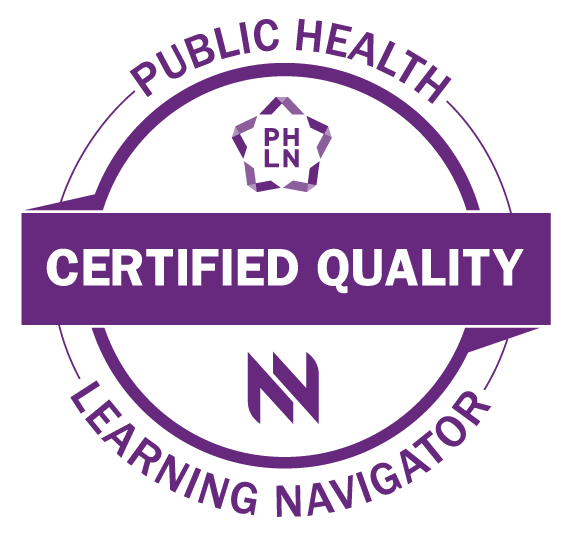Community-Based Participatory Research: A Partnership Approach for Public Health (No CE)
Started Feb 18, 2018
Full course description
PLEASE NOTE: No CE or certificate are available in this free version of the course.
If you are seeking CE or a certificate of completion, you will need to enroll in the paid CE version: https://www.mitrainingcenter.org/courses/cbprs0218ce

Community-Based Participatory Research (CBPR) is a partnership approach to research that equitably involves community members, organization representatives, and academic researchers in all aspects of the research process.
This course was developed by the Detroit Urban Research Center and was originally released in 2009. Given its success as a foundational course, updates were made in 2017 for this new, web-based version.
Audience
Academic researchers from multiple fields, including public health, education, nursing, medicine, social work, urban planning; health and human service practitioners; and members of community-based organizations.
Learning Outcome
At the conclusion of the educational activity, participants will self-report knowledge gain of effective strategies for engaging in CBPR using a 4-point Likert scale.
Learning Objectives
- List the rationale, definition, and core principles of CBPR (CHES Area of Responsibility 4.2.7)
- Describe strategies for forming, maintaining, sustaining, and evaluating CBPR partnerships (2.1.3, 4.7.2)
- Discuss qualitative and quantitative data collection methods and interpretation (4.2.6)
- Explain methods of dissemination and translation of research findings (4.6.8, 4.7.1, 4.7.5)
- Identify benefits, challenges, and recommendations for using CBPR for research and social change (4.2.7)
Authors
Israel, B.A., Coombe, C.M., McGranaghan, R. (2018). Community-based participatory research: A partnership approach for public health (2nd ed.). Community Engaged Scholarship for Health, CES4Health.info, 2018.
Sponsors
This course is maintained by:
The Region V Public Health Training Center is supported by the Health Resources and Services Administration (HRSA) of the U.S. Department of Health and Human Services (HHS) under grant number UB6HP31684 Public Health Training Centers ($924,899). This information or content and conclusions are those of the author and should not be construed as the official position or policy of, nor should any endorsements be inferred by Region V PHTC, HRSA, HHS or the U.S. Government.
Updates made in 2017-2018 were supported by the Michigan Public Health Training Center and Detroit URC. The Michigan Public Health Training Center is supported by the Health Resources and Services Administration (HRSA) of the U.S. Department of Health and Human Services (HHS) under grant number UB6HP27881 Region V Public Health Training Collaborative. This information or content and conclusions are those of the author and should not be construed as the official position or policy of, nor should any endorsements be inferred by HRSA, HHS or the U.S. Government.
The Detroit Urban Research Center’s work on these updates was supported by the National Institute of General Medical Sciences of the National Institutes of Health under award #1R25GM111837-01. Related materials do not necessarily represent views of NIH. Also supported by the University of Michigan.
Original Sponsor Statement:
Detroit Community-Academic Urban Research Center -- Michigan Public Health Training Center (MPHTC), University of Michigan School of Public Health -- Robert Wood Johnson Foundation Clinical Scholars® Program at the University of Michigan -- Yale University Medical Schools -- Community-Based Public Health, Office of Public Health Practice, University of Michigan School of Public Health.
The MPHTC is funded by the U.S. Health Resources and Services Administration (HRSA). Individual authors are responsible for this content and do not necessarily represent the official views of HRSA. Funding from the MPHTC has made production of this training possible.
Technical Information
If you are experiencing any technical difficulties, please try using a different browser (i.e., Chrome, Safari, Firefox). Internet Explorer and Edge will not work with our learning management system.
Contact us at rvphtc@umich.edu with questions.

